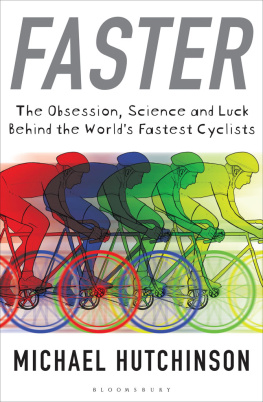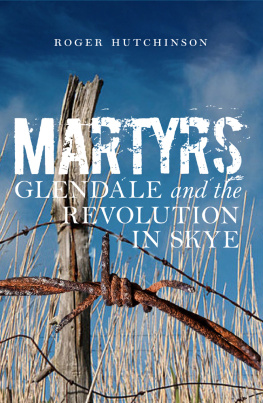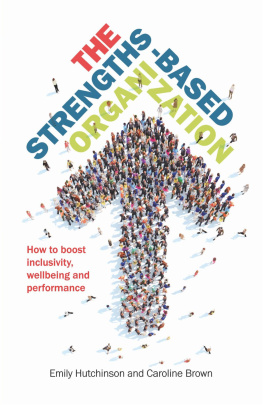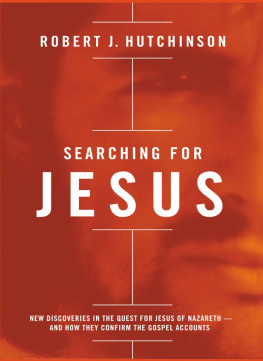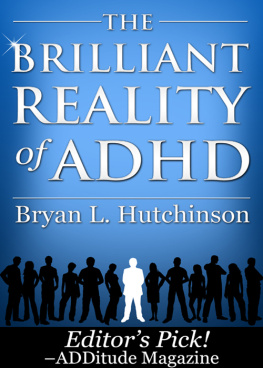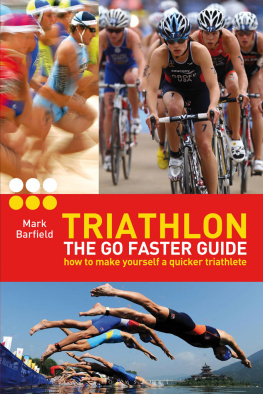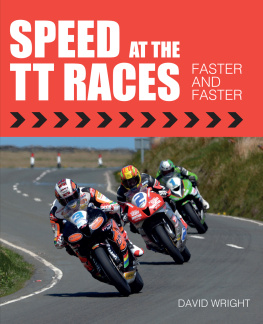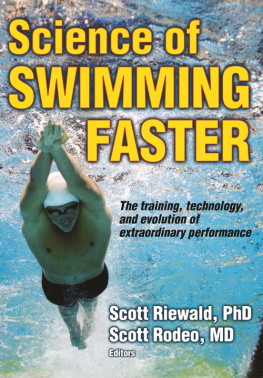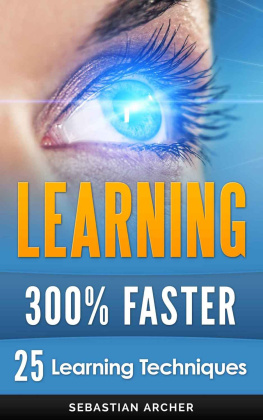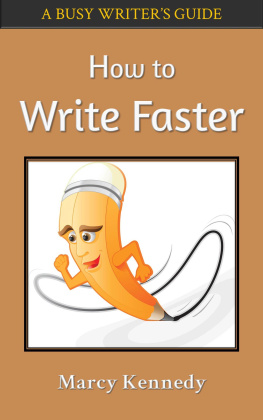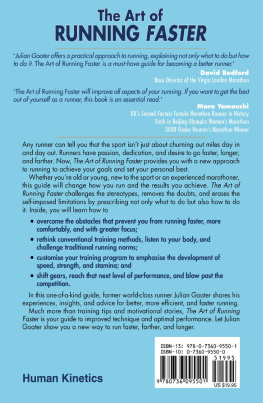
BY THE SAME AUTHOR
The Hour: Sporting Immortality the Hard Way
Missing the Boat: Chasing a Childhood Sailing Dream
We all make sacrifices to feed our passions. In my case, I can barely remember the last time I spent the night anywhere other than in a tent. This would be understandable were I a survivalist, a Bedouin or a terminally lost arctic-explorer, but Im not. Im a cyclist.
The tent is in my bedroom, which most people seem to feel makes things not quite as adventurous, but no less peculiar. I sleep in it because it simulates high altitude the air inside has been pumped through a filtration system to reduce the oxygen content from the normal sea level 20.8% to something more like 14%. Its the equivalent of 3,500m, further up than Europes highest mountain pass. Sleeping at altitude this way is supposed to give you most of the benefits of altitude training without the inconvenience of living and working at the top of an Alp for 12 months of the year, or moving to Albuquerque.
Thats not to say there are no downsides at all. The pump makes a noise like an outboard motor. On a warm night the temperature inside the tent can climb into the unbearable, and on a cold one the condensation drips down the inside until it saturates the sheets and I end up trying to sleep on a tiny sliver of dry in the middle of the bed. If I run a small fan inside the tent it can help with the heat and condensation problems, but then the noise of that combines with the outboard motor to replicate the effect of sleeping on an airliner.
The other inconvenience is my partner. Her first introduction to the tent was when she got home from work one night to find it already fully installed. I hadnt had the nerve to mention it. I suppose I hoped the surprise of finding it would distract her from the surprise of how much money had vanished from our bank account to pay for it. Since we lived in a one-bedroom flat she was either going to have to share it, sleep on the sofa, or just cut her losses and get out of the whole relationship.
I didnt show her the bit of the instruction manual that promised suffocation to those who attempted to share the limited air supply. The way I saw it, the less air there was to go around, the higher the effective altitude, and at no extra cost. I was untroubled by how closely this was related to the plastic-bag-over-the-head altitude-simulation system. This was simply because the tent was something that might help me ride a bike faster. I already trained more or less all day now I could use those wasted hours of sleep to sneak another gain. Id have bought the tent even if the warning was one of a random 30% chance of sudden death. Anything for speed.
I like to think that none of the foregoing would make anyone question my sanity. But even I have to admit that a rational man would have his doubts when I say that to this day I have no idea whether the tent and all its associated costs and aggravations actually made me any faster. The theory is sound, there have been a few reasonably good scientific studies, but even the best of those only claims it makes a relatively small difference, for some people, sometimes. For me, perhaps multiplied by perhaps is enough.
Its not just the tent. In the same period I rode somewhere around 175,000 miles. I owned around 50 bikes, each one of which I was convinced was going to go faster than the previous one. I even spent a morning riding round Manchester Velodromes track in the nude in an attempt to find out if bare skin was faster than a Lycra suit. (It wasnt, and thank God for that.)
I spent hours in laboratories being tested and measured. Im an unusual physical specimen, so there was never any shortage of physiologists keen to poke and prod. I found out all manner of unlikely things about myself I had what was reckoned to be just about the highest ratio of lung-capacity to height measured in a UK lab, for instance that would have made interesting, if creepy, conversation starters at parties if I had not been so scared of catching a cold that I avoided parties at all costs, along with cinemas, and concerts. I sat on planes with a polo-neck jumper pulled up to just below my eyes, like Wilfrid from the Bash Street Kids.
I lived in a world where, one way or another, everything was divided into things that might make me faster and things that might make me slower. Pretty much anything pleasant fell into the second category. Eating sensibly makes you faster. A couple of beers make you slower. A quiet evening with your feet up to recover from a hard day on the bike makes you faster. A night out with your friends makes you slower. But misery and loneliness make you slower too. You dont have to be happy, and you almost certainly arent, but you have to be able to function sufficiently to get up, have a kilo of porridge for breakfast, and get on your bike. Even the most committed have to choose between speed and sanity. So the question is: how much more committed will you be to next weeks workload if you go out for a drink, and try to get riding right, eating right and thinking right out of your mind for an hour or two? Will you lose 3% of the weeks progress, but gain 4%? Always running in the background is an app that asks, How do I go faster?
I never meant for any of this to happen. I never even wanted to be an athlete. My ambition was to be an academic lawyer, and by my mid-twenties thats exactly what I was. I taught slightly left-wing civil liberties and human rights courses to first-year undergraduates at Sussex University. Since most of the students had their hearts set on becoming big-shot lawyers for major corporations, my job was overshadowed by the unspoken irony that my flock was almost certainly going to spend more time oppressing minorities than defending them.
I wasnt really too bothered by this, nor by knowing that theyd earn five times my salary while they did it. But I was driven to despair by the interminable Wednesday afternoon meetings of the faculty staff. Hours spent achieving nothing in an airless 1960s seminar room where the unjustified use of a gender-specific pronoun was fighting talk. We would debate such things as the political significance of the sign on the womens toilet featuring a figure standing legs-together, and the mens featuring one standing legs-apart. Or rather, older members of the faculty would debate it, while I and a couple of the younger members of staff would pass each other sarcastic notes about them under the table.
By then Id been cycling for a couple of years, and I was getting quite good at it. Id begun spending my weekends travelling up and down the UK to national-level races. I often abandoned work at lunchtime to do a few hours training, making up the time by working into the night. I resented every minute spent in the faculty meeting because it was a minute I wasnt on my bike. This quickly progressed to resenting every minute of my job because it was a minute I wasnt on my bike. My contract came up for renewal, and I dont think I even bothered going to the interview. Maybe it happened one Wednesday afternoon while I was down the corridor trying to work out which toilet to use.
I went to a research job at a different university. Or rather I took the money and the accommodation, and spent my time cycling. A successful season followed. A bike manufacturer offered me a contract to go full-time. The money wasnt great, and it would almost certainly be the ruin of my proper career, but I said yes anyway. The obsession with faster had taken hold, and the chance to work at it undistracted by any more grown-up responsibilities was too much to resist. In some ways nothing Ive done since in the pursuit of speed has been quite as irrational.
Next page
